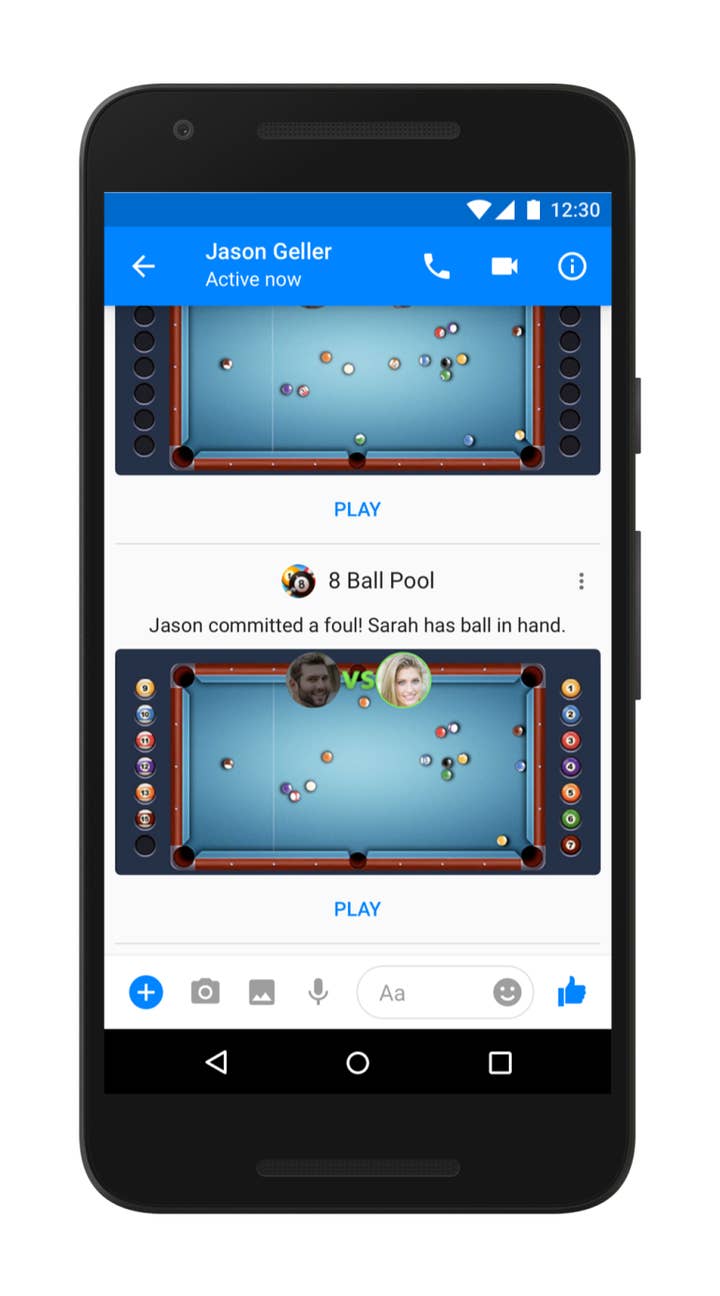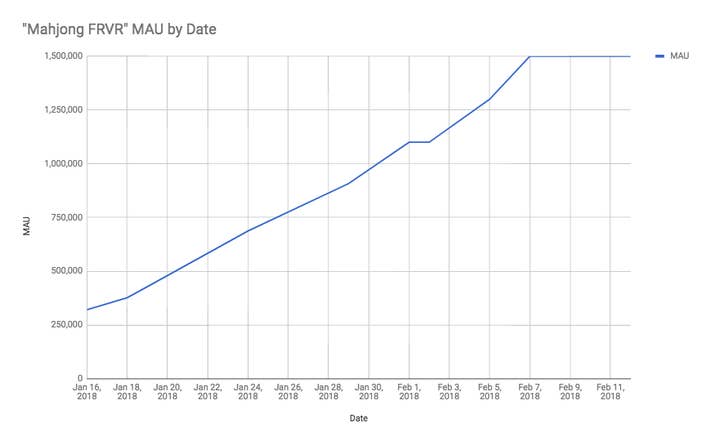Six things you need to know about Messenger Games
Chatterbox Games' Adam Telfer explains the challenges and opportunities offered by platforms like Facebook Instant Games
It's only been a little over a year since Facebook first launched its Instant Games platform, but things have been changing rapidly.
The platform has quickly become a hotbed for new development, with many developers jumping onto the opportunity. As mobile has matured, with many developers finding it tougher and tougher to stand out on app stores, messenger games have become a new platform to drive growth.

Since Facebook Instant Games has launched, many games have seen exceptional growth. Games like Everwing by Game Closure is currently sitting at ten million monthly active users. Because of the viral nature of the platform and the access to billions of players - 1.3 billion MAU according to Facebook - these games can grow fast.
But it's not all sunshine and rainbows for messenger game developers, and approaching the platform as 'just another mobile platform' has proven detrimental to numerous developers. So today I'd like to talk about the three major challenges that messenger games face, and the three opportunities for developers to take advantage of.
Three Challenges
Lower Retention
The first is to note that retention on Instant is lower than mobile. Retention on the platform is more akin to Facebook Canvas games than mobile. While this sounds low, it does reflect the nature of the platform.
Facebook Instant Games are an 'app within an app' and aren't the same as mobile. Players don't have push notifications or home screen icons that remind players to come back.

Retention on the platform doesn't come from having quick access to the game on a player's home screen. Instead, developers have to rely on other channels to remind players to come back to the game, and give quick access to playing. Players can be prompted by messages from their friends, or messages from a Facebook bot (a dedicated channel within Messenger for your game).
Developers have to find ways to be constantly high on the player's list of recently used channels on messenger, without feeling spammy. Otherwise players will mute the app and retention will no longer be possible.
Technology
The second challenge is in the technology. HTML5 has come a long, long way. Playing games like Mystery Manor and Golden Boot on the platform show that HTML5 is closing in quick on mobile performance. However, being able to run 3D and display fancy transitions is just the first step for the technology.
The other aspect is ensuring you can load quickly on as many device types as possible. Messenger is the chat app of choice in many countries, and not all of them utilise the top end devices. This means that while HTML5 technically can run top tier tech, but as an Instant Game that doesn't necessarily mean you should. What's more important is a fast start-up time, even in slower connections.
Thus far, there have been a few great engines built for the platform. Engines like Pixi.JS, Phaser, Construct are great places to look. However, many of these are extremely lightweight and don't come with many tools out of the box. Dev teams used to the ease of development when working with engines like Unity will need to invest heavily in an engine to create quality games. This is why the current leaders on the platform are typically existing HTML5 development studios over mobile developers moving over. Until there's some established engines on the platform to ease development, technology-focused developers have the advantage.
Discoverability
The last challenge isn't necessarily a big problem... yet. As of February 16, 2018, there are less than 200 games launched on the platform. This is low, for now. But the issue stems from the way that Facebook is handling games on the platform.
Right now, they are just displayed in a long list within the 'Games' tab. They are listed in a simplistic manner, putting the bigger games on top, with some new games getting a boost temporarily. Thus far, Facebook hasn't opened up any tools for developers to acquire players in any other manner. So for now, developers are extremely restricted in how they can create that initial 'spark' of growth. Build a great game, try to push up the list as far as you can, and hope that your game can grow when it's up there.
Three Opportunities
User Growth
On the flip side of discoverability, when you do get retention right and when your game is promoted on the list, you can see unprecedented growth.

Take Mahjong FRVR, for example. Since January 16th, they have grown from 320,000 monthly active players to over 1.5 million. All only by organic downloads and virality. That's not something that happens ever on mobile. This game has minimal virality features (no feature in the game really incentivises you to play with friends) and is a fairly simple mahjong game. Imagine if this game was built for virality from the ground up?
Social Connections
The second opportunity is social mechanics. On mobile, the percentage of players that want to connect with Facebook has been declining over time. Players don't want to spam their friends, they don't want to share their playing habits on mobile, and mobile games have shifted towards pushing players to play with random strangers rather than your own friends.
However, from working on Facebook and mobile games for the last ten-plus years, it's clear what impact Facebook connection rates have on players. It's not just about virality, it's also about retention and engagement. When a player has their real friends within a game, they are instantly more engaged. Beating a friend on a leaderboard is far more gratifying.
Messenger gaming opens up the opportunity for stronger engagement and retention simply because Facebook connection is embedded in the experience. Games instantly have a player's social graph within the game. It feels natural to be playing with friends. The social aspect is inherent in messenger games.
It's Where the Players Are
The last key opportunity is because of the nature of changing habits in players behaviour on mobile. Looking at recent data, ComScore reports that a majority of smartphone users are downloading zero apps per month.
While this is happening, engagement and active user bases within mobile chat applications have surged to record levels. While gaining installs on mobile is incredibly difficult, players are engaging more in messaging apps. The promise of messenger games is not to create a new platform and ask players to adopt it, but to meet players where they are already most engaged.
If I've learned anything about technology and new platforms over the last years, its that the best path for a technology to become ubiquitous is not to demand people to change their habits. It's to innovate and enhance from what they were already doing.
Adam Telfer is co-founder of Chatterbox Games, a Berlin-based startup focused solely on messenger games. They recently raised a pre-seed from Reaktor Ventures and Angel Investors.
Telfer recently joined us on The GamesIndustry.biz Podcast, discussing the future of free-to-play games.